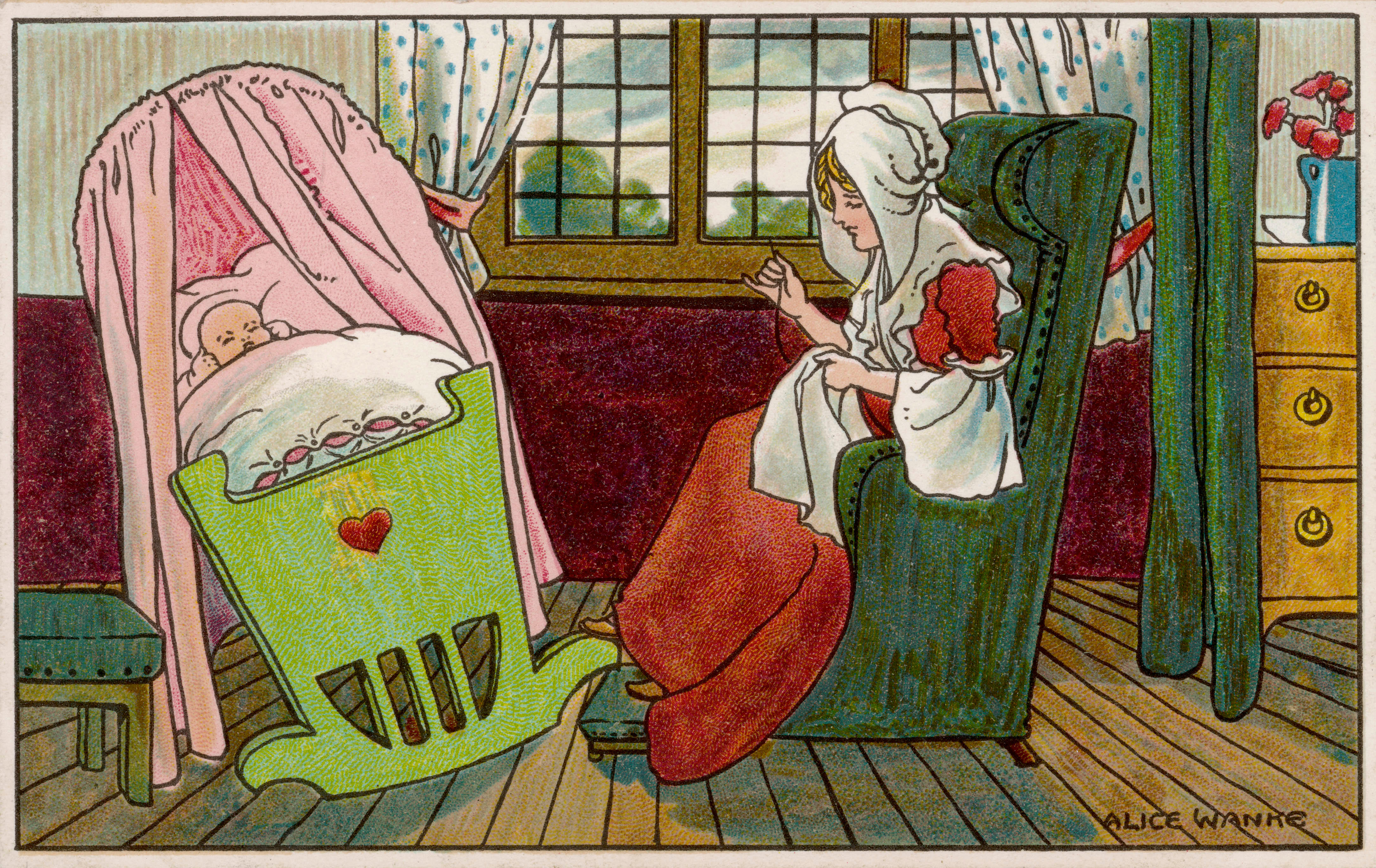5 weird pieces of vintage parenting advice
These old parenting tips shine some light on what it was like to raise kids in the early 20th century


There's a lot of weird parenting advice out there. And new or expectant mothers know that everyone — from in-laws to strangers on the street — have their own recommendations to share, whether they're invited to do so or not. Parents of the 19th and early 20th centuries had to deal with this onslaught of opinions, too. And a lot of old-timey parenting advice was really, really weird. These recommendations were made at a time when we were on the cusp of some very big discoveries, but still just a smidge off on a few things. Here are some of examples of the more outrageous ideas.
1. Pregnant women must avoid thinking about ugly people
Parenting is hard enough. Can you imagine doing it with the added pressure of believing your own thoughts could adversely affect the health and appearance of your child? Back in the early 1920s, if your baby had any physical imperfections, it was thought to be the result of the mother having gazed upon something ugly. "Pregnant mothers should avoid thinking of ugly people, or those marked by any deformity or disease; avoid injury, fright, and disease of any kind," wrote B.G. Jefferis and J.L. Nichols in Searchlights on Health: The Science of Eugenics. The advice didn't stop there. Mothers were told to "cultivate an interest in admiring beautiful pictures and engravings." These pictures, which were usually found in journals or magazines, were expected to help turn an unborn baby pretty. The guilt a mother must have felt if indeed there was something physically unique about her baby must have been very difficult to deal with.
The Week
Escape your echo chamber. Get the facts behind the news, plus analysis from multiple perspectives.

Sign up for The Week's Free Newsletters
From our morning news briefing to a weekly Good News Newsletter, get the best of The Week delivered directly to your inbox.
From our morning news briefing to a weekly Good News Newsletter, get the best of The Week delivered directly to your inbox.
Today, we know that a mother's eye candy has nothing to do with how a baby looks. Otherwise my children would resemble Chris Hemsworth.
2. Barely touch the baby
New parents can't help but hold, hug, and kiss their babies. But in the early 20th century, parents were all but told to ignore their kids. "Don't amuse or play with your baby too much," Jefferis and Nichols wrote. "Its regular daily routine is all the stimulation its little brain needs at first." They believed this would help reduce chances of infant mortality. Similarly, "every baby should be 'mothered' more and mauled less. Babies thrive on cuddling but they can get along on a lot less kissing."
This kind of advice was also meant to keep the baby from interfering with a parent's normal life as much as possible. If you were holding the baby all the time, how were you expected to tend to the housework and the other kids? So the basic advice was to turn the baby occasionally from side to side, feed it, change it, and then go make sandwiches.
A free daily email with the biggest news stories of the day – and the best features from TheWeek.com
Thanks to science, we now know that holding young children "early and often" is incredibly beneficial to their health. So get cuddling.
3. Spanking your baby will make it stop crying
We've all heard (and perhaps even been on the receiving end) of this myth. For years, spanking was considered a cure-all for misbehaving kids. But it was also thought to be the best way to correct a "nervous" or crying child. Consider this passage, from The Mother and her Child, written in 1916.
When the little fellow wakes up in the night and cries, see if he needs anything and administer to him. If you have previously tried the method of letting him "cry it out," which is usually entirely sufficient in the case of a normal child, and if such treatment does not seem to cure him, then speak to him firmly, give him to understand that he must stop crying, and if he does not, turn him over and administer a good spanking — and repeat if necessary to get results. [The Mother and her Child]
The same spanking method was thought to help a crying child snap out of a tantrum:
We run into many snags when we undertake to discipline the nervous baby. The first is that it will sometimes cry so hard that it will get black in the face and may even have a convulsion; occasionally a small blood vessel may be ruptured on some part of the body, usually the face. When you see the little one approaching this point, turn it over and administer a sound spanking and it will instantly catch its breath. This will not have to be repeated many times until that particular difficulty will be largely under control. [The Mother and her Child]
4. Babies should sleep facing north
There's never been a shortage of advice for getting a baby to sleep — after all, exhausted parents are often desperate to try anything, so long as it works. Back in 1889, a doctor named George H. Napheys said that "the position of our bodies at night, with reference to the cardinal points of the compass," could make for a better night's snooze. Specifically, infants should sleep with their heads facing north.
"Strange as this idea may at first sight appear, it has more in it than might be supposed," Napheys wrote in The Physical Life of Woman. "There are known to be great electrical currents always coursing in one direction around the globe ... our nervous systems are in some mysterious way connected with this universal agent."
In hindsight, this kind of thing seems more like ritual or superstition than anything else, like when I would play a certain song on my iPod before putting my baby down to sleep because there was that one time she slept through the night after hearing said song.
5. Do not wean babies in the summer
"To wean an infant in the city in hot weather, is to expose it to almost certain death," Napheys wrote in The Physical Life of Woman. The book states that if a mother "is obliged during the summer to give up nursing, she should at once procure a wet-nurse. If she cannot, the child must be sent into the country."
It's not entirely clear what the logic behind this advice was, but it sounds really scary. Perhaps it was related to sanitation problems. After all, our standards for hygiene in the late 1800s left a lot to be desired.
Parenting advice and information has come a long way from guys in handlebar mustaches spouting crazy theories to anxious moms. But who knows? Maybe in 150 years, today's parenting tips will seem just as nuts.
Mandy Waysman is a freelance writer who has been featured at She Knows, Mommyish, Parent, The Huffington Post, Parent Map, and Scary Mommy. She has appeared in three books including Lose The Cape: Never Will I Ever (then I had Kids) and The Narcissist's Playbook.
-
 The Mint’s 250th anniversary coins face a whitewashing controversy
The Mint’s 250th anniversary coins face a whitewashing controversyThe Explainer The designs omitted several notable moments for civil rights and women’s rights
-
 ‘If regulators nix the rail merger, supply chain inefficiency will persist’
‘If regulators nix the rail merger, supply chain inefficiency will persist’Instant Opinion Opinion, comment and editorials of the day
-
 Trump HHS slashes advised child vaccinations
Trump HHS slashes advised child vaccinationsSpeed Read In a widely condemned move, the CDC will now recommend that children get vaccinated against 11 communicable diseases, not 17
